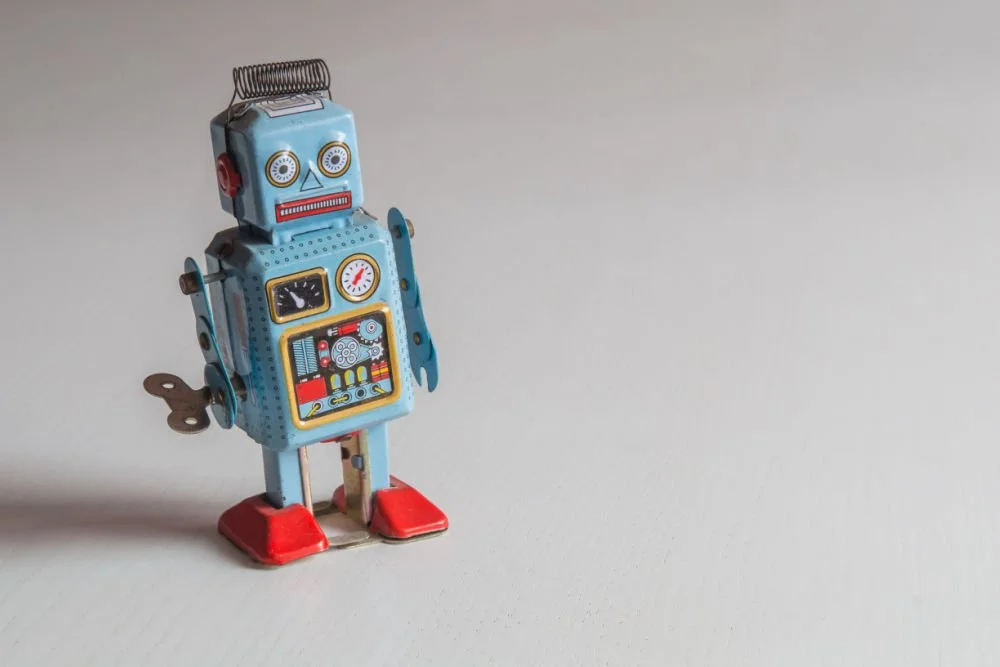As Millions Flow for Campus Research on Health and AI, What Might Be Some Downsides?
/Gorodenkoff/shutterstock
In 2017, IBM and MIT joined forces to create a new $240 million partnership to support collaborative artificial intelligence research over the next decade. As we noted at the time, the partnership funded the creation of a new lab, dubbed the MIT-IBM Watson AI Lab, with the goal of leveraging Cambridge’s booming biotech sector to apply its work to other industries, such as healthcare.
That was probably a smart bet. AI has the potential to transform everything doctors do, from notetaking and medical scans to diagnosis and treatment, greatly cutting down the cost of medicine and reducing human mortality, writes Eric Topol, author of Deep Medicine: How Artificial Intelligence Can Make Healthcare Human Again. “By freeing physicians from the tasks that interfere with human connection,” the book’s summary states, “AI will create space for the real healing that takes place between a doctor who can listen and a patient who needs to be heard.”
Less than a year and a half later, after the launch of the MIT-IBM lab, the partnership’s vision is coming into sharper focus. IBM Watson Health recently announced it will make a 10-year, $50 million investment in research collaborations with two academic centers—Brigham and Women’s Hospital, which is a teaching hospital of Harvard Medical School, and Vanderbilt University Medical Center, to “advance the science of artificial intelligence and its application to major public health issues.”
In one fell swoop, the gift merges two hot areas of interest among higher ed funders—AI and public health—while sprinkling in a bit of classic enlightened self-interest, as the commitment will prepare students for careers in a healthcare field increasingly reliant on AI technology. The gift is also a textbook example of “philanthropy as R&D.” Recent studies suggest AI has a long way to go before it delivers on the promises articulated by Topol. In fact, as we’ll soon see, some commentators argue its application in the healthcare field will exacerbate inequality.
Can AI Transform Healthcare?
IBM Watson Health is a healthcare company dedicated to solving “some of the world’s most pressing health challenges through data, analytics and AI.” This approach leans on the emerging field of cognitive computing, the attempt to mimic the way the human brain works.
It sounds like heady, sci-fi stuff until you reach IBM Watson Health’s Cognitive Computing fact sheet, which spells out how technology like AI can help its clients deliver better care. For instance, IBM’s “Insights for Patient Data” service “identifies the problems contained in a patient’s historical medical record, summarizes the history of care around the patient’s specific problems, and provides a cognitive summary of a patient’s record.”
Now, you may be asking, how does this approach go beyond the traditional human-centric model?
First, 80 percent of healthcare data is unstructured. It would take humans multiple lifetimes to sort it all out. What’s more, medical data is expected to double every 73 days by 2020. As a result, physicians are spending an average of two hours with their electronic health records (EHR) and desk work for every hour of patient care, a phenomenon that is “leading to a steady increase in physician burnout,” said Dr. Kyu Rhee, vice president and chief health officer at IBM Watson Health.
“AI is the most powerful technology we have today to tackle issues like this one,” Rhee said, “but there is still a great deal of work to be done to demystify the real role of AI in healthcare with practical, proven results and clear-cut best practices.”
IBM Watson and other grantmakers believe that universities can play a key role in advancing this work.
Health Equity and AI
The scientific collaborations at Brigham and Women’s Hospital and Vanderbilt University Medical Center will, according to IBM’s press release, “focus on critical health problems that are ideally suited for AI solutions.” Initial areas of study are expected to include the use of AI to “improve the utility of electronic health records and claims data to address significant public health issues like patient safety, precision medicine and health equity.”
The last issue mentioned, health equity, has been getting a lot of attention lately from university donors. In a recent post looking at the public health gold rush sweeping American campuses, I called attention to how funders are increasingly framing public health as a means to accelerate social justice and combat inequality. For example, last November, Chicago’s Loyola University announced the creation of the Parkinson School of Health Sciences and Public Health. The new school, which netted a $20 million lead gift from former Baxter International CEO Robert Parkinson and his wife Elizabeth, will “assist the poor and marginalized of our society” while “closing gaps in healthcare access and equity.”
By including the issue of health equity in its emerging work on AI and health, IBM Watson is linking up this hot topic of donor interest with a research area that’s also attracting new resources on campus. As we’ve reported, there’s been a surge in gifts earmarked to ensure the ethical and responsible development of AI technology. Joining these two areas to explore how AI can drive down healthcare inequities seems hopeful and intriguing. It’s easy to imagine more donor dollars flowing to university research on this nexus.
Will It Work?
But will investments in cognitive computing actually reduce healthcare inequities and drive better outcomes? The jury is still out.
Writing in the New York Times, Dr. Dhruv Khullar argued that AI could actually worsen health disparities. How? Kullar cites three reasons. The first is a “training problem.” Cognitive computing can work, in theory, if the technology pulls from apples-to-apples data sets. The problem? Minorities, in particular, are traditionally underrepresented in medical research. Therefore, if the patient in question is, an unhealthy African-American, for example, the AI-driven conclusions won’t be entirely applicable if the technology is trained on data focused on affluent whites.
Secondly, "because AI is trained on real-world data, it risks incorporating, entrenching and perpetuating the economic and social biases that contribute to health disparities in the first place.”
And third, “AI has the potential to worsen disparities if its implementation has disproportionate effects for certain groups.” For instance, “If an algorithm incorporates residence in a low-income neighborhood as a marker for poor social support, it may recommend minority patients go to nursing facilities instead of receiving home-based physical therapy.”
Bottom line? “In medicine, unchecked AI could create self-fulfilling prophecies that confirm our pre-existing biases,” Khullar states.
Just as we’ve raised questions about universities taking gobs of research money from companies keen to perfect and profit from self-driving cars, a technological advance that could have major societal downsides, it’s important to sound a cautionary note about industry money bankrolling campus research on AI and health
A Mixed Track Record
In addition to exacerbating inequalities in health care, a recent study suggests that AI may also lead to inferior care.
In 2012, IBM announced Watson would revolutionize cancer treatment by using AI to digest and distill the thousands of oncology studies published every year plus patient-level data and expert recommendations into treatment recommendation. However, an analysis courtesy of STAT found that Watson gave physicians inaccurate cancer treatment advice, while company medical specialists and customers reported “multiple examples of unsafe and incorrect treatment recommendations," according to internal IBM documents.
Those documents include comments reflecting serious dissatisfaction from customers, according to the report. “This product is a piece of shit. We bought it for marketing and with hopes that you would achieve the vision. We can’t use it for most cases,” a doctor at Florida’s Jupiter Hospital said in the documents, according to STAT.
The grantmakers behind the IBM Watson gift notes that this is precisely why its $50 million commitment is needed, as it empowers researchers to identify—to quote IBM’s Rhee—“practical, proven results, and clear-cut best practices.” This is par for the course for any type of game-changing technology, a point that IBM underscored after the STAT piece broke. In a statement, the company said it has “learned and improved Watson Health based on continuous feedback from clients, new scientific evidence and new cancers and treatment alternatives.”
IBM isn’t the only grantmaker supporting university research to develop AI’s potential to sort through vast amounts of medical information. Last year, the Chan Zuckerberg Initiative announced an initial grant of $5.5 million toward a partnership with UMass Amherst’s Center for Data Science to develop an artificial intelligence-powered program, Computable Knowledge, to accelerate science by allowing researchers to analyze millions of published findings.
Meanwhile, other donors in the health space are also intrigued by the possibilities raised by AI. Last year, Jay Alix made a $200 million commitment to the Mayo Clinic for, among other things, supporting and developing dual-degree programs that integrate concepts like artificial intelligence and bioengineering with medicine.
Nor should we neglect other huge AI higher ed gifts in the traditional computer science realm, like Amin Khoury’s $50 million endowment gift to Northeastern University and Stephen Schwarzman’s massive $350 million gift to MIT. Meanwhile, Gartner, Inc. estimates that $3.9 trillion in AI-derived business value will be created by 2022.
It’s hard to get donors to agree on much nowadays, but one thing is for certain: AI is here to stay, whether we want it or not.
“We all know that the future of health belongs to AI,” said Dr. David Bates, chief of general internal medicine at Brigham and Women’s Hospital and professor of medicine at Harvard Medical School, “but today, health around the globe is siloed and not actionable, making timely insights difficult to obtain.
“Through AI, we have an opportunity to do better, and our hope is to find new ways through science and partnerships with industry leaders like Watson Health to unlock the full potential of AI to improve the utility of the EHR and claims data to address major public health issues like patient safety.”




































